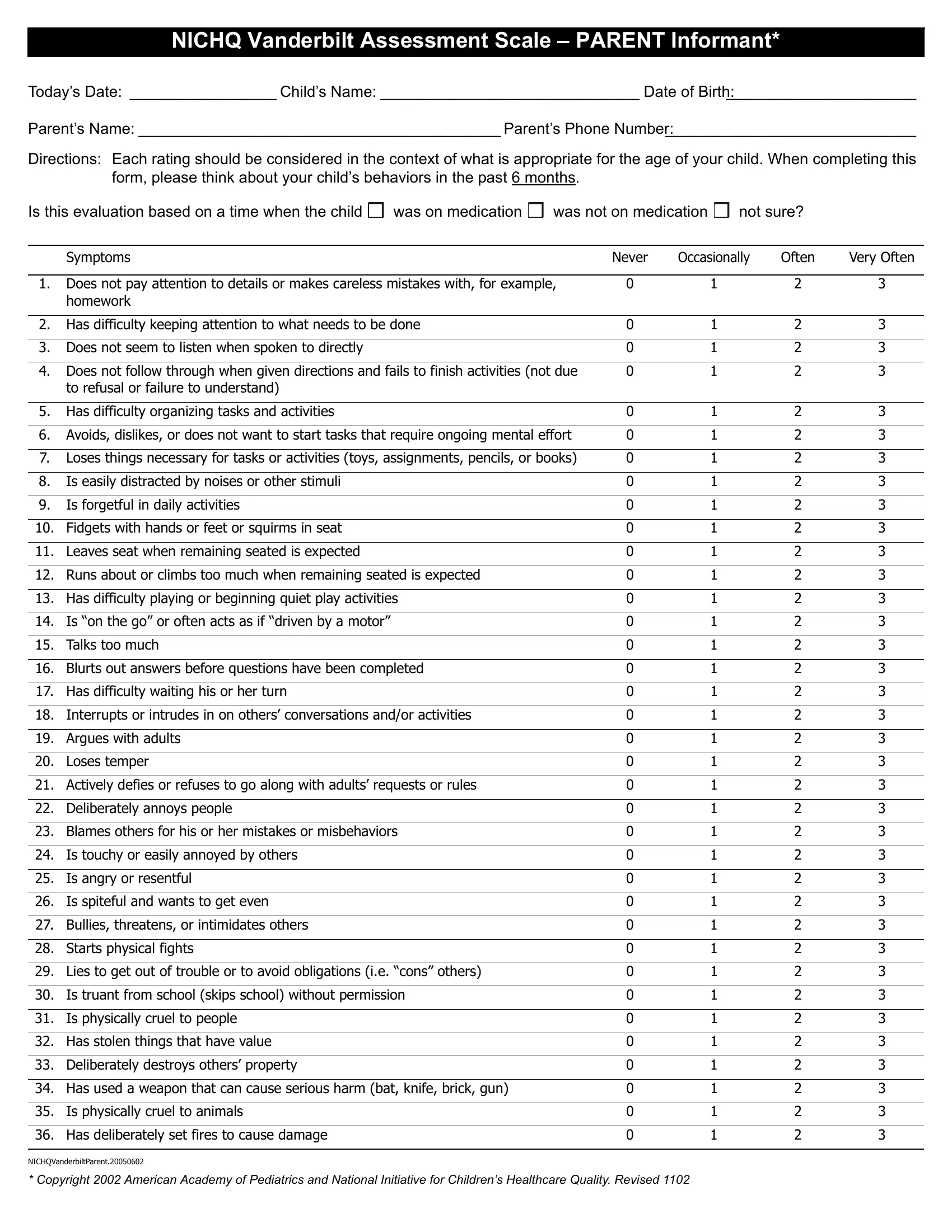You'll be able to complete vanderbilt forms parent effectively in our PDFinity® online tool. In order to make our tool better and less complicated to work with, we continuously come up with new features, considering feedback from our users. In case you are seeking to get started, this is what it will require:
Step 1: Open the PDF form in our editor by clicking the "Get Form Button" at the top of this webpage.
Step 2: This editor grants the ability to customize your PDF file in a range of ways. Transform it by writing personalized text, adjust what is already in the PDF, and add a signature - all at your disposal!
This PDF doc will need specific details; in order to guarantee accuracy, take the time to adhere to the next steps:
1. Whenever filling in the vanderbilt forms parent, be sure to complete all of the needed blanks in its associated part. This will help speed up the work, making it possible for your details to be handled quickly and accurately.
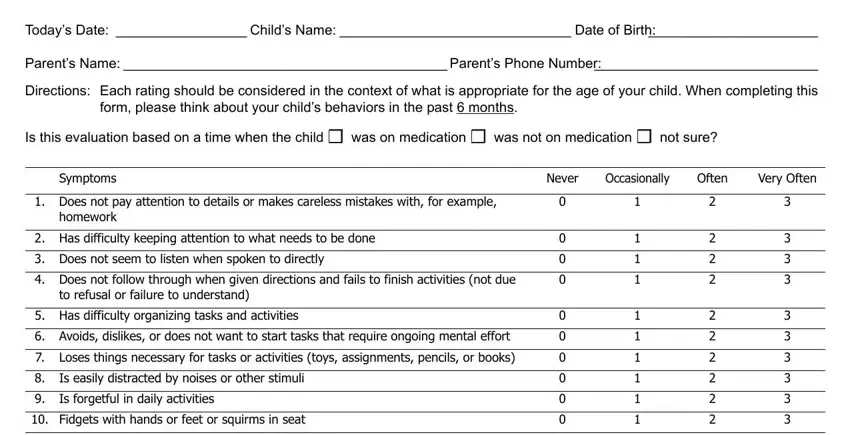
2. Now that the last segment is finished, you should insert the essential particulars in Leaves seat when remaining seated, Runs about or climbs too much, Has difficulty playing or, Is on the go or often acts as if, Talks too much, Blurts out answers before, Has difficulty waiting his or her, Interrupts or intrudes in on, Argues with adults, Loses temper, Actively defies or refuses to go, Deliberately annoys people, Blames others for his or her, Is touchy or easily annoyed by, and Is angry or resentful allowing you to progress further.
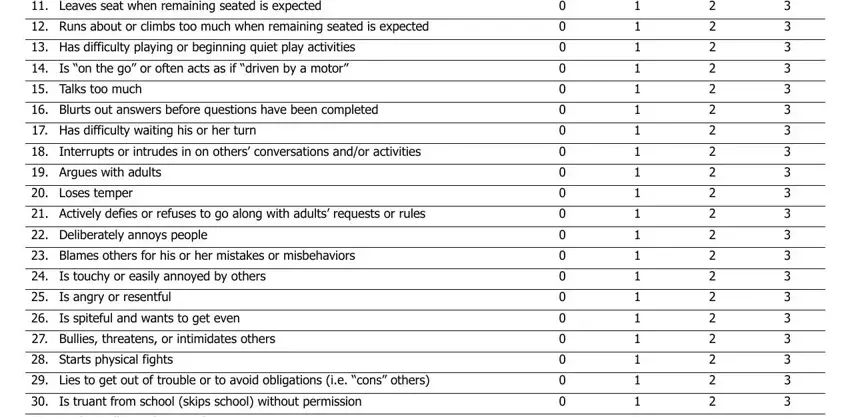
It's simple to make an error when filling in the Is on the go or often acts as if, so ensure that you reread it before you'll finalize the form.
3. This subsequent segment is generally relatively simple, Is physically cruel to people, Has stolen things that have value, Deliberately destroys others, Has used a weapon that can cause, Is physically cruel to animals, Has deliberately set fires to, NICHQVanderbiltParent, and Copyright American Academy of - every one of these empty fields will have to be filled in here.

4. This specific part comes with the next few empty form fields to consider: Todays Date Childs Name Date of, Parents Name Parents Phone Number, Symptoms, Never, Occasionally, Often, Very Often, Has broken into someone elses, Has stayed out at night without, Has run away from home overnight, Has forced someone into sexual, Is fearful anxious or worried, Is afraid to try new things for, Feels worthless or inferior, and Blames self for problems feels.
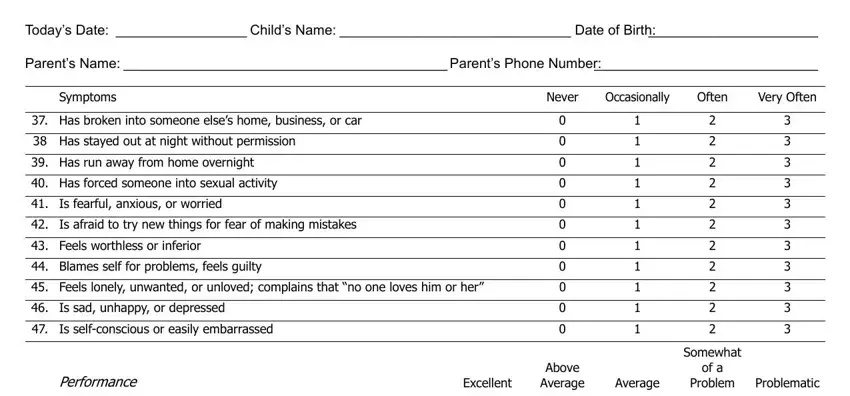
5. The last point to finalize this document is crucial. Be certain to fill out the required fields, like Overall school performance, Reading, Writing, Mathematics, Relationship with parents, Relationship with siblings, Relationship with peers, Participation in organized, Comments, For Office Use Only, Total number of questions scored, Total number of questions scored, and Total Symptom Score for questions, before submitting. Failing to do it can produce an unfinished and potentially incorrect paper!
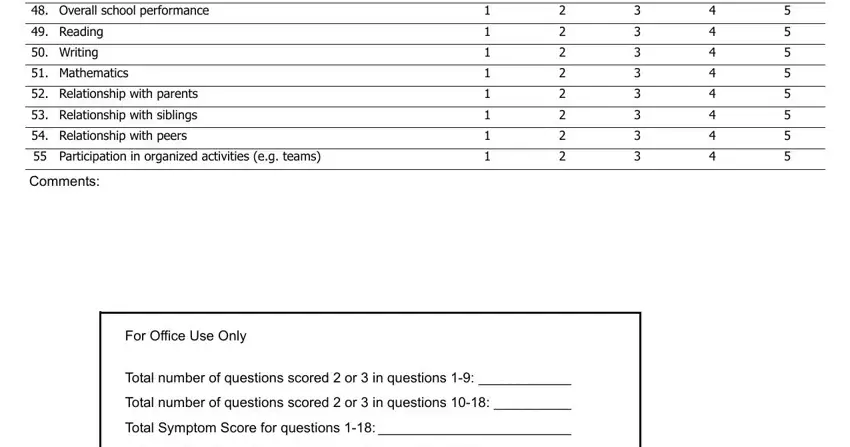
Step 3: Make sure the information is accurate and then press "Done" to conclude the process. Sign up with us today and easily use vanderbilt forms parent, prepared for download. All changes you make are kept , which means you can change the file at a later point as required. We don't sell or share the information that you enter whenever working with forms at our site.
